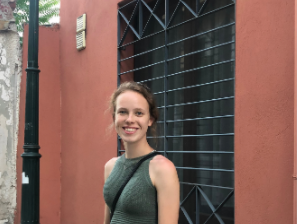New packaging service introduced to campus
February 1, 2019
Last fall, Case Western Reserve University became one of more than 30 universities across the country to introduce Amazon Lockers: a method of receiving Amazon packages with the scan of a QR code. These kiosks were introduced to CWRU in an effort to offset the volume of packages delivered to the residential hall area offices, a third of which are reported to be from Amazon.
As Amazon continues to increase expectations of quick deliveries through guaranteed two-day delivery with an Amazon Prime membership, and one-day pick up for residents of specific cities, other corporations are pressured to do the same. Neopost Group, a digital communications, shipping and mail solutions provider headquartered in France, responded a few years after the introduction of Amazon lockers with a seemingly identical parcel service called Packcity.
The “intelligent parcel lockers,” are an effort to ease consumer retrieval through saving time and money while providing complete accountability. Once the delivery service has placed the package into a locker, the recipient will receive a notification with a code via email or text message. The recipient then enters the code and one of the unit’s lockers opens for package retrieval. The Packcity lockers provide 24/7 access for pick-up.
Packcity by Neopost has now joined the Amazon Lockers on campus in efforts to meet the demand for rapid delivery. Additionally, David Brown, Assistant Director of University Housing, reports the lockers to be part of a strategy to process and distribute packages in a “timely and efficient way.”
The implementation of such a system has been nascent for several years as University Housing began noticing an “onset of lines” in students waiting to receive their packages. Brown and John White, Director of University Housing, visited the University of Pittsburgh to better understand their experiences with the lockers, as well as speak to the staff about logistics of adding the lockers to campus. Their research found the locker systems to be successful, leading University Housing to work with the purchasing department to collect bids for the project.
The Neopost brochure for their Packcity product reports reduction of labor and labor costs as packages will no longer have to be dropped off at several locations but instead to the lockers themselves. Brown responded to the expectation that Packcity and other similar lockers may decrease the number of student staff needed to assist with package deliveries. However, he is confident that “there will always be a need for staff support of the package delivery system.”
Starting this semester, all students’ UPS deliveries have been redirected to the Packcity lockers, and University Housing has asked that students pick up their packages within three days of delivery. “The system is only as quick and efficient as the package turnover can be,” said Brown. His hope is to decrease the current turnover average of 1.6 days to 0.8 days. Improving package turnover time is what Brown believes will spur a “real difference.”
Amelia Harman, a fourth-year student who has worked in the Wade Residential Area Office for a year, thinks the Packcity program is interesting, but could be “redundant as students do not get to choose whether their package is delivered to the [parcel] lockers,” as one does with the Amazon Locker system. She explained how students may have to go to the Packcity lockers to receive some packages but wait in line at Wade and the South Residential Village Area Office for others. However, these locker systems certainly “help with the package load,” Harman reported, citing the influx of packages delivered in the first few weeks of the semester as students order textbooks.
Any problems or concerns which may arise with the new Packcity locker system can be directed to David Brown via his CWRU email or the Packcity customer care center for more technical issues.



